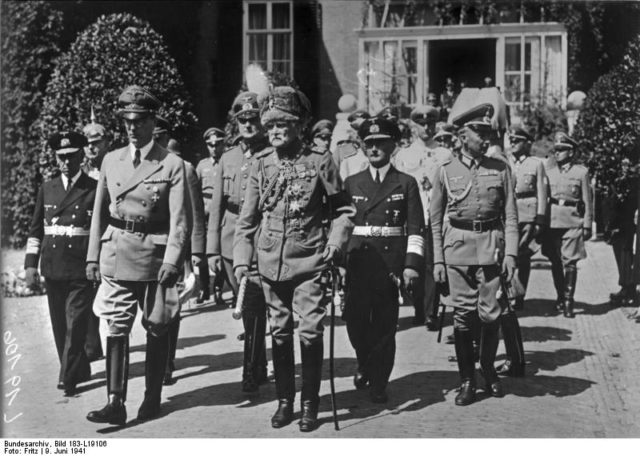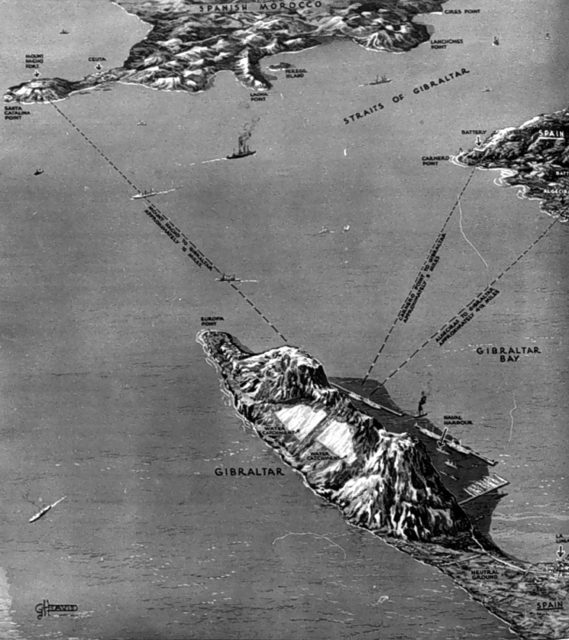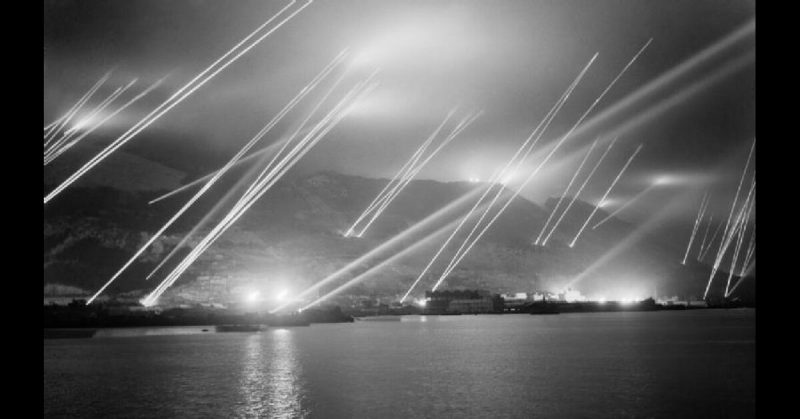The legacy of Germany during World War II is filled with conflict, battles, and the grim stories of war atrocities – yet what isn’t often discussed are the moments that never were. Like so many other wars and so many other militaries, the Nazi forces didn’t carry out every operation planned and intended.
One such failed attack, Operation Felix, never even left the planning stages before being filed away as a lost cause. Though Germany wanted to bolster its control and its territories, Operation Felix wasn’t the military maneuver that would increase that power.
The Invasion That Never Was, Begins
Although planning began in earnest in the early 1940s, Operation Felix never came to life. It all started with one of Adolf Hitler’s right-hand men, Hermann Göring, who first advised the Nazi dictator that invading new territories would be beneficial.
As Hitler looked towards the all-important territory of the United Kingdom just across the ocean, Göring suggested that instead of attacking and invading England, it would be better to move towards Spain and North Africa. So, though Germany under Nazi control was already preparing to take control of France, Hitler began to make plans for new territorial gains.
As early as June of 1940, the German dictator began preparing to invade Gibraltar – a British naval base of massive importance – as well as countries further away.

It all began with the armistice between France and Germany in that same year. Hitler’s closest advisors recommended that he begin making plans to seize even more crucial territories and nations, so he started preparing to push his Nazi forces through Spain and then move on to take control of Northern Africa.
The initial plan was for the German Panzer division of the military to send two divisions down south: one would take control of Gibraltar, and the other would invade French-held North Africa. Chief of Oberkommando der Wehrmacht (OKW), General Alfred Jodl, was the man with the master plan. Jodl presented Hitler with the official plans to eliminate Britain’s power and end their reign the Mediterranean by installing German control over Gibraltar, Spain, North Africa, and the power-laden Suez Canal.
The plan began moving into place – and perhaps even its first steps – when the OKW commissioned a meeting of a special planning group on July 12, 1940. Just ten days later, the head of the Abwehr, Admiral Wilhelm Canaris, was sent on a voyage to Madrid. While there, the admiral and his team of Nazi officers met with Spain’s ruler, General Francisco Franco, as well as Spain’s Minister of War, General Juan Vigón. They were to discuss how, exactly, Germany would make moves to invade Gibraltar – however, the Nazis met with unexpected opposition.
It was immediately clear that the Spaniards didn’t want to join the new world war until they knew who was going to win it.
Hitler’s Trusted Men Work Against His Cause
Despite the efforts in Spain, Admiral Canaris wasn’t exactly a helpful force. It was later discovered that Canaris was actively opposing Hitler’s efforts. During his meeting with Franco, Canaris worked hard to convince the Spanish leader to steer clear of Hitler altogether and effectively convinced him to not join the Axis Powers alliance.
What saved Canaris’ job was his discovery that Gibraltar could be taken by force, as he reported the Germans could invade the Gibraltar via air attack and ground units supported by artillery.

Hitler continued to send Admiral Canaris on various trips to secure support for the Nazi occupation of new nations all while Canaris worked to dissuade different emissaries from joining the Nazi cause. Throughout 1940, the admiral met with different Spanish officials and French leaders, all of whom he convinced to stay out of World War II.
To persuade world leaders, Canaris sent leaders to Germany to meet with Hitler under the impression that Germany would never forcibly invade their nation – ironically, the dictator himself didn’t share his invasion plans with any of these men, allowing Canaris a clear path to move against Nazi efforts.
Though he also resorted to lies and terms not approved by the German government, the admiral made incredible progress against his home nation.
Canaris Retains Hitler’s Trust – and Operation Felix Fails
Despite Canaris’s complete betrayal of Hitler’s wishes, his true motives weren’t uncovered. In fact, Hitler believed exactly the opposite of his trusted Admiral. So, Canaris was sent on further missions to Spain to continue his persuasion of Franco. With each visit, Canaris reminded the Spanish ruler just how foolish it would be to join the German cause. Canaris emphasized how badly Germany would lose the war, pitting it and its allies against the most powerful nations in the world.
As effective as Canaris was, Hitler still had a hand in speaking with his faithful allies – the German leader personally met with Franco in France, trying to push for Spain’s partnership as soon as January 1941.
Franco stayed firm in his refusal. When speaking with Hitler, Franco pointed out that Spain didn’t have a large enough military nor enough economic resources to join the Gibraltar takeover. The Spanish leader even managed to offend Hitler when he implied that Germany stood no chance fighting England on her own territory. No progress occurred between the two men, and their conversations ended with zero agreements; neither leader gained what he’d hoped for.

Hitler didn’t seem to care, though, and plans for Operation Felix proceeded. His military experts prepared to not only take control of Gibraltar, but also Spanish Morocco, Rio de Oro, and the Canary Islands. By November 12, 1940, Hitler announced his intentions with Führer Directive No. 18. That directive started that Operation Felix would remove Britain from its territories, placing them under German rule.
So, it came as no surprise that Hitler made one more attempt to persuade Franco of Spain’s importance and involvement. Canaris was sent back to Spain to secure Franco’s alliance and assistance – and one final time, Franco refused, and Canaris made no effort to dissuade him. Hitler received Canaris’s final report of Franco’s stubborn “no,” and decided there was no way he could carry out Operation Felix.
It was tabled, though Hitler did continue pestering Franco for nearly three more years about the possibility of launching it once again. Ultimately, thanks to Canaris’s refusal to follow orders and Franco’s refusal to bring Spain into the war, England escaped a potential conflict on its home turf.
